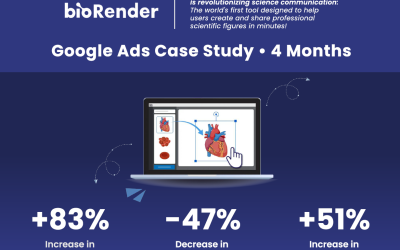Digital marketers are constantly seeking ways to do more with less. Automation technology has quietly become one of their most powerful allies, providing a solution to streamline processes, reduce manual labor, and drastically boost productivity. Whether it’s through personalized content, targeted advertisements, or improved lead generation, automation is reshaping how marketers operate.
In this blog, we’ll explore five key reasons why automation technology is a must-have for digital marketing, and we’ll take a look at the top tools leading the charge.
1. Personalization at Scale
Tailor content to each customer without the time drain of manual effort.
Personalization is no longer a luxury—it’s an expectation. Automation tools analyze user data to create customized marketing messages for thousands of users at once. This level of personalization builds stronger customer relationships and drives engagement, all without bogging down your team with manual tasks. Instead, marketers can focus on strategy and creativity while automation does the heavy lifting.
2. Targeted Ads with Precision
AI-powered tools make targeting more effective, leading to better ROI.
Automation technology leverages artificial intelligence to target ads precisely to the right audience. By analyzing visitor demographics and preferences, these tools help marketers tweak ads for specific groups, resulting in more relevant campaigns and improved return on investment. This also increases customer satisfaction because your ads are only shown to those who truly care about your products.
3. Improved Lead Generation and Nurturing
Automate lead follow-up to nurture potential customers effectively.
Manually following up on every lead is inefficient, and many leads don’t warrant your attention. Automation tools like chatbots handle this for you, responding to common queries and keeping leads engaged through consistent communication. These tools guide potential buyers through the sales funnel with minimal human interaction, freeing you up to focus on bigger decisions and strategies.
4. Time-Saving and Efficiency
Save countless hours by automating repetitive tasks and data analysis.
Automation allows digital marketers to perform tasks like A/B testing or analyzing huge datasets without needing to monitor every detail manually. For instance, AI tools can scan thousands of data entries in seconds, providing insights and projections that would take a human hours to compile. Whether it’s running tests or analyzing financial data, automation makes it quicker and easier to make well-informed decisions.
5. Cost-Effectiveness
Automation tools can save you money, especially for small businesses.
As automation technology advances, it’s becoming more affordable, even for small businesses. Many tools offer packages that bundle multiple marketing functions, such as email marketing and social media management, into one subscription. This eliminates the need to hire large teams, reducing overhead costs. Investing in automation tools now can lead to long-term savings and a more efficient operation.

Top Automation Functions for Digital Marketing
From social media management to customer relationship tools, these are the automation technologies shaping the future of digital marketing.
1. Workflow and Task Automation
Digitize workflows and free your team from repetitive tasks.
Tools with OCR (Optical Character Recognition) capabilities, such as image-to-text converters, streamline document digitization. These tools make it easy to manage workflows efficiently and avoid human errors. Whether it’s digitizing sales reports or SEO audits, automation makes your processes faster and more accurate.
2. Social Media Management
Save time by automating social media posts and responses.
Tools like HootSuite consolidate all your social media channels into one platform, automating replies and optimizing your messages. Based on past data, HootSuite also suggests ways to enhance social posts, allowing marketers to focus on big-picture strategies rather than getting bogged down in daily tasks.
3. Customer Relationship Management (CRM)
Automate lead nurturing and customer follow-ups for better results.
CRM tools like HubSpot automate customer interactions, making it easy to follow up with leads, request feedback, and nurture relationships. HubSpot also streamlines the sales funnel, ensuring that your leads are nurtured and guided efficiently through their journey.
4. Analytics and Reporting
Get real-time insights and make data-driven decisions without manual reporting.
Google Analytics automates data tracking and reporting, helping marketers keep tabs on crucial metrics like bounce rates, click-through rates (CTR), and time spent on the page. By automating analytics, you’ll have more time to refine your marketing strategies and focus on the channels that perform best.
5. Email Marketing
Boost engagement by automating your email marketing campaigns.
Mailchimp allows you to automate email responses, send personalized messages, and even choose from pre-designed email templates. Whether you’re sending a checkout reminder or promoting a new product, automating these tasks will save time and increase engagement.
Conclusion
Automation technology has become an essential part of digital marketing, helping brands streamline workflows, reduce manual effort, and increase productivity. By leveraging automation tools like HootSuite, HubSpot, Google Analytics, and Mailchimp, you can personalize your marketing efforts, improve your lead generation, and ultimately, boost your bottom line.
CTA: Learn more about how automation can supercharge your digital marketing efforts. Download our guide to discover top automation strategies for marketers!




